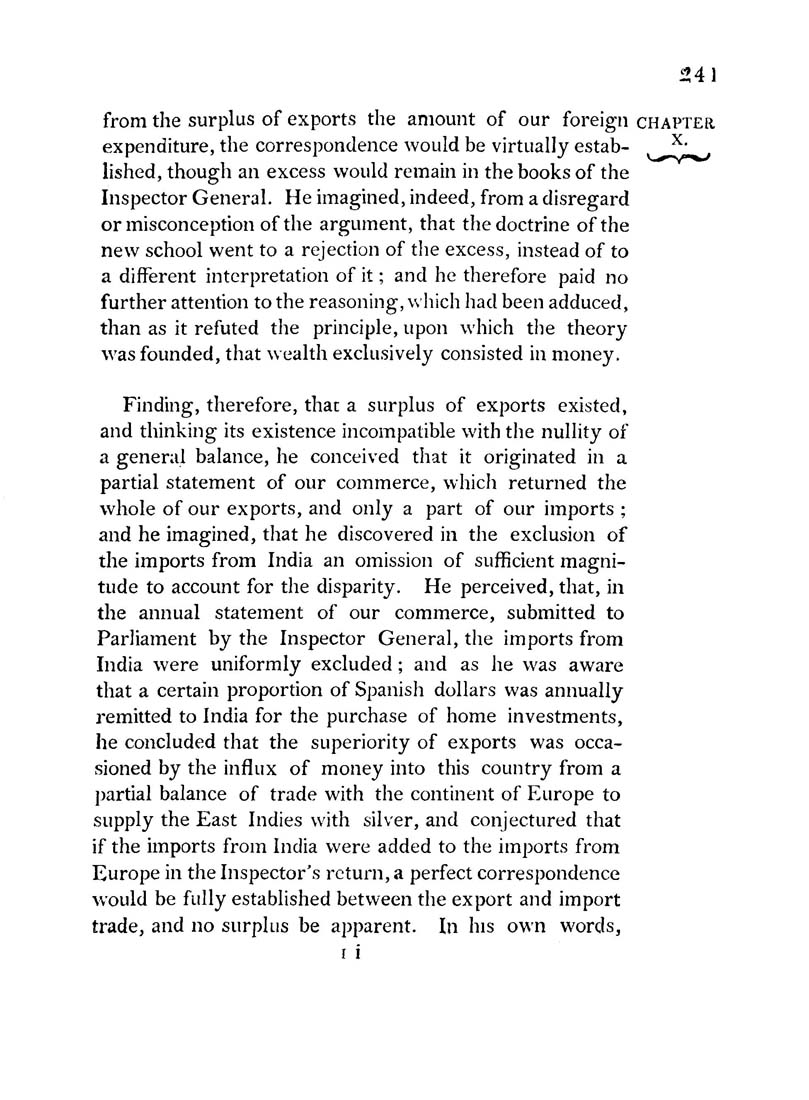^41
from the surplus of exports the amount of our foreign chapter
expenditure, the correspondence would be virtually estab- ^^J^
lished, though an excess would remain in the books of the
Inspector General. He imagined, indeed, from a disregard
or misconception of the argument, that the doctrine of the
new school went to a rejection of the excess, instead of to
a different interpretation of it; and he therefore paid no
further attention to the reasoning, which had been adduced,
than as it refuted the principle, upon which the theory
w^as founded, that wealth exclusively consisted in money.
Finding, therefore, that a surplus of exports existed,
and thinking its existence incompatible with the nullity of
a general balance, he conceived that it originated in a
partial statement of our commerce, which returned the
whole of our exports, and only a part of our imports ;
and he imagined, that he discovered in the exclusion of
the imports from India an omission of sufficient magni¬
tude to account for the disparity. He perceived, that, in
the annual statement of our commerce, submitted to
Parliament by the Inspector General, the imports from
India were uniformly excluded ; and as he was aware
that a certain proportion of Spanish dollars was annually
remitted to India for the purchase of home investments,
he concluded that the superiority of exports was occa¬
sioned by the influx of money into this country from a
partial balance of trade with the continent of Europe to
supply the East Indies with silver, and conjectured that
if the imports from India were added to the imports from
Europe in the Inspector's return, a perfect correspondence
would be fully established between the export and import
trade, and no surplus be apparent. In his own words,
I i
|








